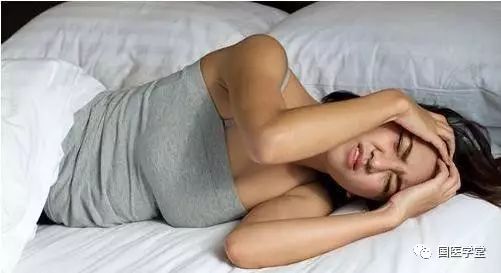From the perspective of Traditional Chinese Medicine (TCM), a deficiency of essence and blood, or a lack of yin fluids, is classified as yin deficiency. So what exactly causes yin deficiency? What issues arise in our bodies? Let’s explore this together.

What are the common manifestations of yin deficiency?
1. Stomach Yin Deficiency
Stomach yin deficiency refers to insufficient gastric fluids, leading to symptoms such as dry mouth and lips, a burning sensation, a lack of appetite, dull pain in the stomach area, dry throat, retching, a lack of taste in food, discomfort in the chest after eating, a red tongue with a dry center, little coating, or little saliva, dry and hard stools, and scanty urination with a thin and rapid pulse.
2. Heart Yin Deficiency
This condition, known as heart blood deficiency, is caused by excessive mental strain, prolonged illness, or heat diseases that deplete heart yin. Symptoms include weight loss, forgetfulness, irritability, insomnia with vivid dreams, dry mouth and throat, and heat in the palms and soles.
3. Liver Yin Deficiency
According to TCM, three conditions can lead to liver yin deficiency: emotional distress causing qi stagnation and fire transformation, depletion of liver yin after a warm disease, and insufficient kidney yin failing to nourish the liver. Symptoms include facial flushing, dizziness, dry eyes, and other related issues.

4. Spleen Yin Deficiency
Spleen yin deficiency indicates insufficient spleen essence, often occurring during recovery from warm diseases or in the later stages of chronic wasting diseases. It results from internal injury due to overwork and excessive thinking, leading to depletion of spleen yin and fluids. Symptoms include weight loss, dry lips, and poor appetite.
5. Lung Yin Deficiency
Lung yin deficiency refers to insufficient yin fluids that fail to moisten the lungs, resulting in weight loss, facial flushing, heat in the palms and soles, dry mouth and tongue, hoarseness, and night sweats.
6. Kidney Yin Deficiency
This is a type of kidney deficiency characterized by kidney yin depletion, leading to insufficient nourishment and the generation of internal heat. Individuals with kidney yin deficiency often feel cold but exhibit significant internal heat symptoms, such as warmth in the palms, soles, and chest, and are prone to heat-related issues. Symptoms include a dry red tongue with little coating, hair loss, insomnia with vivid dreams, and memory decline. Men may experience nocturnal emissions and impotence, while women may have reduced menstrual flow or amenorrhea.




